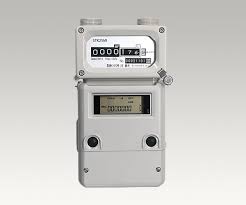
Prepaid gas meters are at the forefront of this change, offering innovative solutions for managing gas consumption, billing, and promoting energy efficiency. In this article, we will explore the concept of prepaid gas meters, their key features, benefits, challenges, and their role in shaping the future of energy management.
The Need for Prepaid Gas Meters
Traditional gas meters have long served as the primary method for measuring and billing gas consumption. However, they come with several limitations, including the need for manual readings, delayed billing, and potential inaccuracies. The introduction of prepaid gas meters addresses these issues by offering a more efficient, convenient, and transparent way to manage gas consumption.
-
Eliminating Bill Shock: With traditional postpaid billing, consumers often receive bills with unpredictable and potentially high amounts, leading to “bill shock.” Prepaid gas meters allow consumers to pay for their energy upfront, avoiding unexpected financial burdens.
-
Promoting Energy Conservation: Prepaid gas meters encourage consumers to be more mindful of their energy consumption. When individuals are aware of their real-time energy usage and the cost associated with it, they tend to be more energy-efficient.
-
Reducing Disconnections: Traditional postpaid billing models can result in disconnections for non-payment. Prepaid gas meters reduce the risk of disconnections as consumers pay in advance.
-
Enhanced Accuracy: Prepaid meters provide precise measurements of gas consumption, reducing billing errors and disputes between consumers and utility providers.
Key Features of Prepaid Gas Meters
Prepaid gas meters are equipped with various features that set them apart from traditional postpaid meters:
-
Prepayment Functionality: The most distinctive feature is the ability for consumers to prepay for their gas. This often involves the purchase of a gas credit or token, which is loaded onto the meter, allowing gas usage until the credit is exhausted.
-
Real-time Monitoring: Prepaid meters provide real-time data on gas consumption, enabling consumers to track their usage and make informed decisions about energy conservation.
-
Low Credit Alerts: When the prepaid credit is running low, the meter sends alerts to the consumer, giving them ample time to top up and avoid disconnection.
-
User-friendly Interfaces: Prepaid gas meters are designed with user-friendly interfaces, including digital displays that show consumption, available credit, and alerts.
-
Top-up Options: Consumers can top up their prepaid meters in various ways, including at local retailers, online platforms, or through mobile apps.
-
Emergency Credit: Some prepaid meters offer an emergency credit feature, allowing consumers to have limited access to gas in case their credit is exhausted.
Benefits of Prepaid Gas Meters
The adoption of prepaid gas meters offers numerous advantages for both consumers and gas utility companies:
Benefits for Consumers
-
Financial Control: Prepaid meters give consumers more control over their energy expenses, allowing them to budget and plan for gas consumption.
-
Energy Conservation: Real-time monitoring encourages consumers to be more energy-conscious, leading to reduced consumption and lower bills.
-
Transparency: Prepaid meters offer complete transparency regarding gas consumption, costs, and available credit.
-
Reduced Disconnections: Prepaid meters reduce the risk of disconnections for non-payment, as consumers pay in advance.
Benefits for Gas Utility Companies
-
Efficient Billing: Prepaid meters eliminate the need for manual readings and the issuance of paper bills, reducing administrative costs.
-
Improved Cash Flow: Utility companies receive payments in advance, improving their cash flow and reducing the risk of unpaid bills.
-
Reduced Debt: The risk of accumulating unpaid bills and bad debt is significantly reduced with prepaid meters.
-
Enhanced Customer Satisfaction: Prepaid meters provide a more convenient and flexible way for consumers to manage their gas usage, leading to higher customer satisfaction.
Challenges and Concerns
While prepaid gas meters offer numerous benefits, they also come with specific challenges and concerns:
-
Upfront Costs: The installation of prepaid gas meters can be costly for gas utility companies, which may require initial investments in meter infrastructure.
-
Vulnerable Consumers: Some consumers may struggle with upfront payments, leading to concerns about affordability and accessibility.
-
Limited Emergency Credit: Emergency credit features may not always provide sufficient gas supply in critical situations.
-
Data Privacy: The collection of real-time data on gas usage raises privacy concerns, and measures must be in place to protect consumers’ data.
Future Outlook
The future of prepaid gas meters is promising, with continued advancements in technology and energy management. Several trends and developments are expected in the coming years:
-
Integration with Smart Grids: Prepaid gas meters will become an integral part of smart energy grids, allowing for more dynamic pricing, load management, and demand response programs.
-
Improved Affordability: Efforts will be made to make prepaid gas meters more affordable and accessible to a broader range of consumers.
-
Enhanced Emergency Features: Emergency credit functionality will be improved to ensure that consumers have access to gas during critical situations.
-
Data Security: Security measures for data collection and communication will continue to evolve to protect consumer data.
Conclusion
Prepaid gas meters represent a significant leap forward in the field of energy management and billing. These meters offer transparency, control, and convenience to consumers while streamlining operations for gas utility companies. While challenges such as upfront costs and affordability must be addressed, the future of prepaid gas meters holds great potential in contributing to a more efficient, sustainable, and consumer-oriented energy landscape. The adoption of prepaid gas meters is a crucial step in meeting the evolving demands of energy efficiency and financial responsibility in our modern world.


